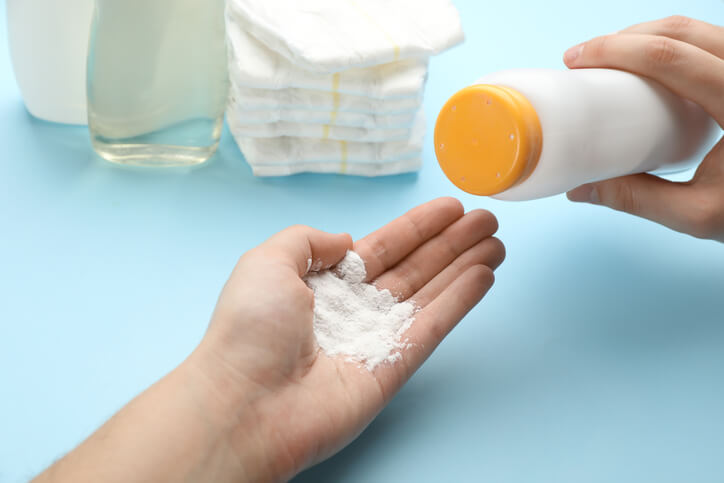Johnson & Johnson Reaches $700M Settlement With 42 States Over Talc Product Marketing
Editors carefully fact-check all Consumer Notice, LLC content for accuracy and quality.
Consumer Notice, LLC has a stringent fact-checking process. It starts with our strict sourcing guidelines.
We only gather information from credible sources. This includes peer-reviewed medical journals, reputable media outlets, government reports, court records and interviews with qualified experts.

This week, 42 states and the District of Columbia reached a $700 million agreement with Johnson & Johnson, resolving an investigation into the company’s deceptive marketing of its talc-based products including its iconic Johnson’s Baby Powder. The investigation blamed the products for causing cancer and the manufacturer for misleading consumers about product safety and purity.
“We are leading a multistate action against Johnson & Johnson’s deceptive marketing of products that contained talc, securing $700 million nationwide,” said Florida Attorney General Ashley Moody in a statement. “This is a major advancement for consumer product safety, as Johnson & Johnson has stopped the manufacturing and marketing of products containing talc powder — which may be linked to serious health issues, including cancer.”
Johnson & Johnson sold its talcum-based products for over a century, promoting them as essential for personal hygiene and baby care.
Under the consent agreement, J&J will permanently stop manufacturing, marketing, promoting, selling and distributing all talcum powder-containing baby and body powder products in the U.S., including Johnson’s Baby Powder and Shower to Shower. This includes stopping these actions both directly and indirectly through third parties.
Johnson & Johnson announced it would stop global sales of its talc-based products and switch to cornstarch versions in 2023.
Plaintiffs claim that the company has known for decades that its talc products were contaminated by asbestos, but hid the information from the public. J&J denies the accusations and continues to maintain its products are safe.
The settlement will deliver the highest payouts to a handful of states, including $78 million to California, $62 million to Texas, $48 million to Florida, $44 million to New York and $30 million to New Jersey. The remaining amount will be divided among the other states.
J&J first announced the settlement in January.
Johnson & Johnson Faces Thousands of Talc Liability Lawsuits
The company is still fighting more than 57,000 talc lawsuits in New Jersey federal court and a class action lawsuit accusing the New Jersey-based company of hiding the dangers from shareholders.
Plaintiffs claim Johnson & Johnson’s talcum powder products caused them to develop cancers like mesothelioma and ovarian cancer.
In May, Johnson & Johnson proposed a $6.48 billion settlement to address all existing and future ovarian cancer claims through a third bankruptcy filing for its subsidiary, LTL Management. The plan would require 75% support from plaintiffs during a three-month voting period.
“We firmly believe this plan is in the best interest of claimants and should receive a favorable and immediate confirmation from the bankruptcy court,” said Erik Haas, Johnson & Johnson’s worldwide vice president of litigation, at the time the deal was announced.
There have been no announcements regarding the status of the proposed settlement.
Mesothelioma Sufferer Fights J&J In Dallas
While the majority of cases J&J faces involved ovarian cancer, it is fighting a smaller number of mesothelioma cases, a type of rare cancer caused by asbestos exposure.
In Dallas, Texas, a jury trial is currently taking place to determine if Johnson & Johnson is responsible for the mesothelioma developed by Jerry Newton. Newton claims he used J&J’s talcum products for decades, unknowingly exposing himself to asbestos-contaminated talc.
Talc, a soft mineral, can become contaminated with asbestos during the mining process as the two often develop alongside one another in the earth.
The pharmaceutical giant has long defended its products and claims that scientific studies disprove the link between its cosmetic talc products and mesothelioma.